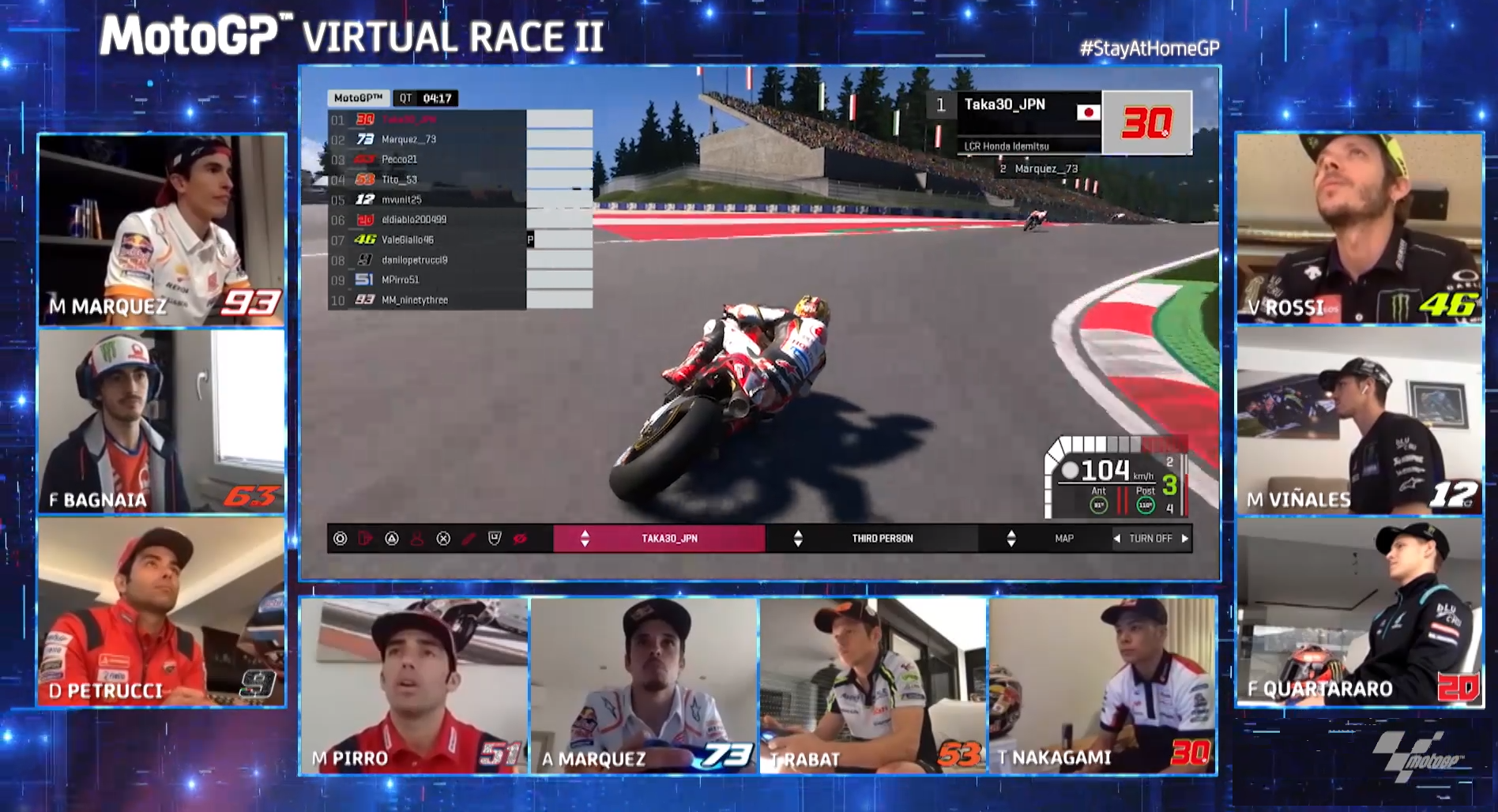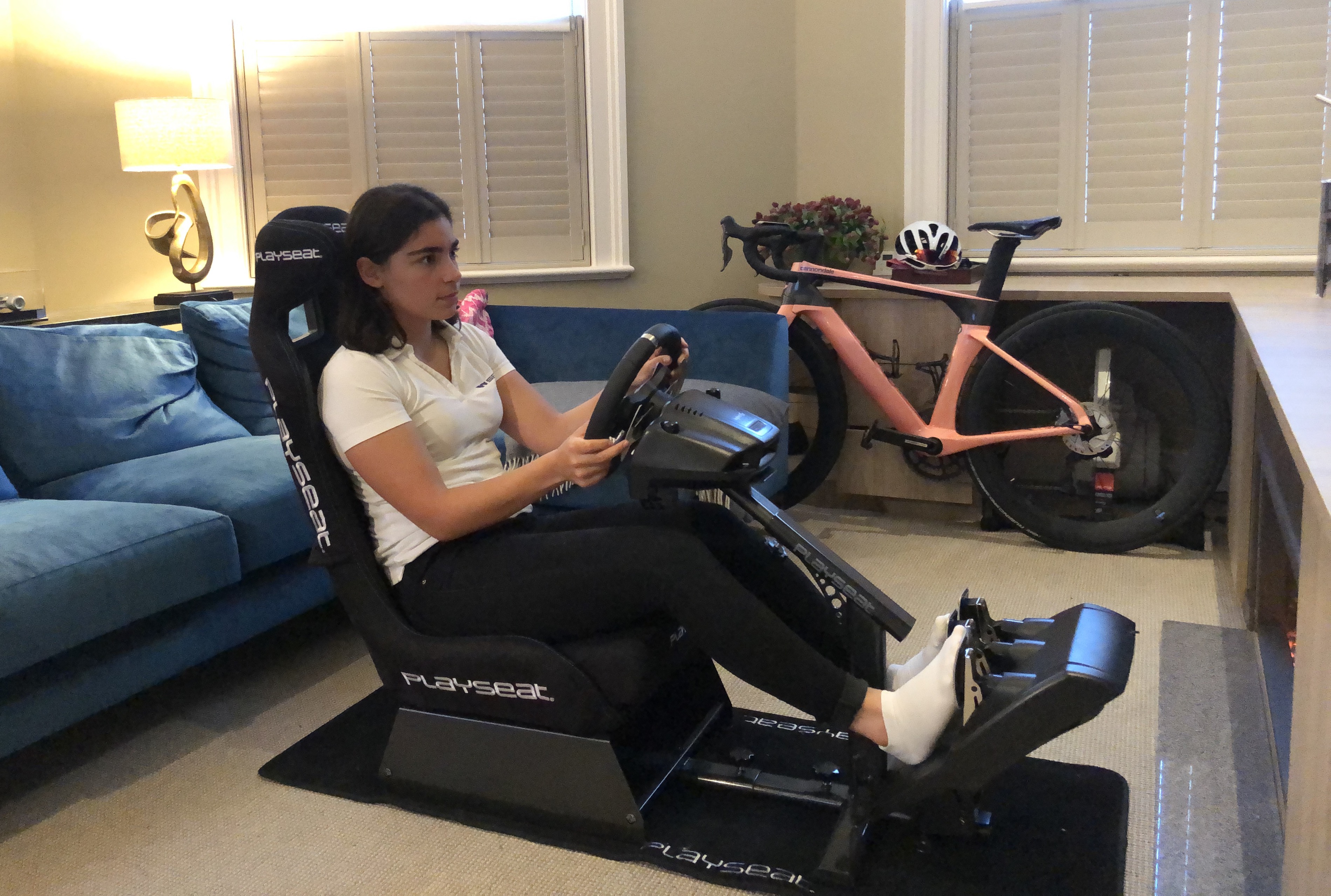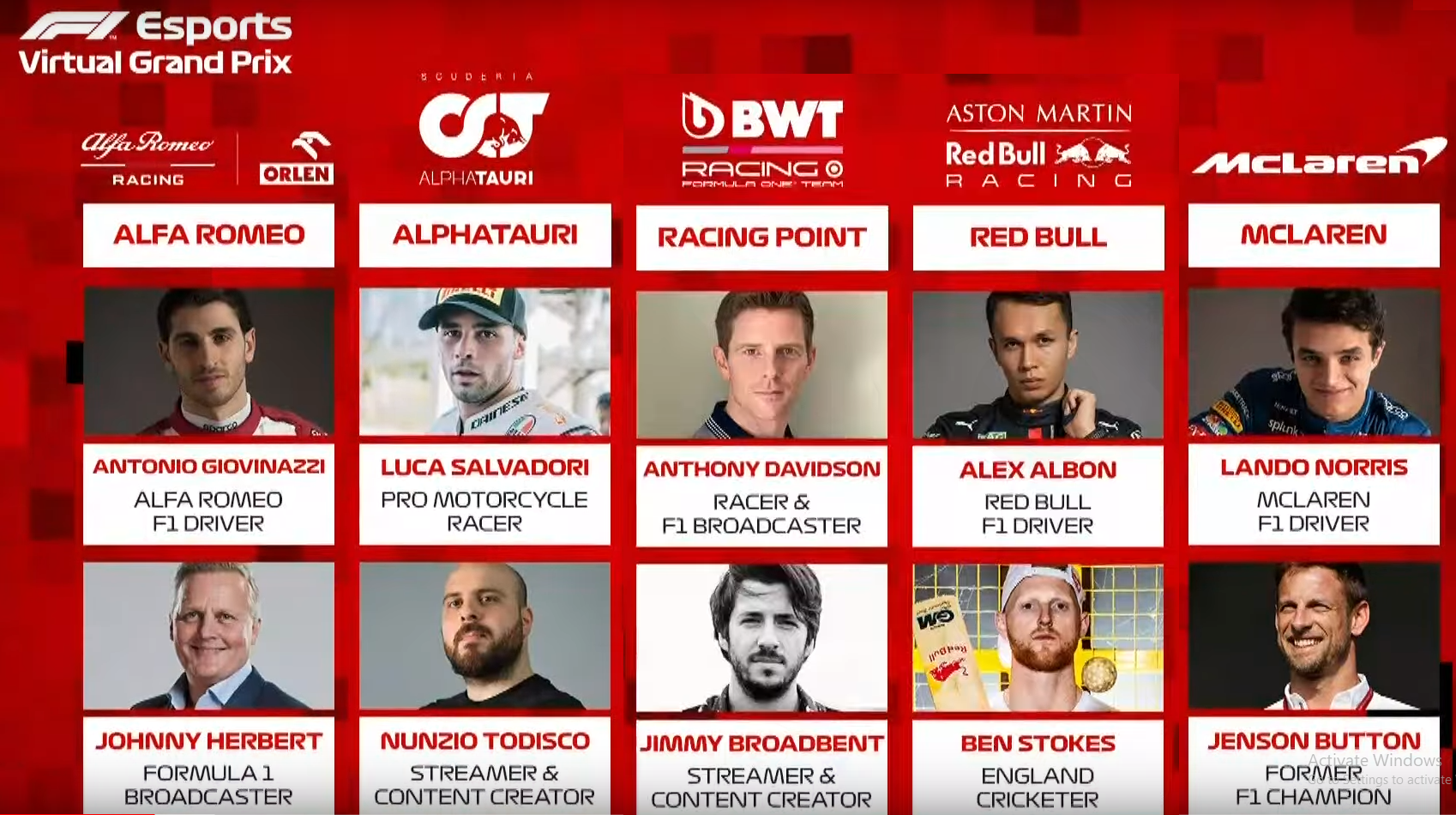Will esports replace traditional motorsports?
Considering the number of avenues e-racing has been opening up, especially in these coronavirus lockdown days, and it becomes a very pertinent question

A lot of blood, sweat, and tears go into a successful career in sports, and for someone aiming to take up motorsport as a profession, there's also a significant monetary burden added. I’m stuck in no ivory tower here; irrespective of country, motorsport is an especially difficult, inherently dangerous and astronomically expensive activity, and making it your profession was (and still is) considered nothing short of madness.
Yes, we realise it’s that madness which drives us to watch men in leather astronaut suits getting into/onto low-flying missiles, manoeuvring them within inches of each other at ludicrous speeds every single weekend, but madness is madness. Period.
 Riders during qualifying at the #StayAtHomeGP
Riders during qualifying at the #StayAtHomeGPBut what if all us crazy car and bike fanatics could get a chance to indulge in our dream, without worrying about the recurring costs of equipment, travel, and the never-ending hunt for sponsors? Well, the digital route is the way to go! No, I’m not trying to pull a fast one on you. Equating video games to the real thing doesn't seem far-fetched. After all, the latest simulators are the closest things to the actual racecar experience.
But as always, there are going to be promoters and detractors. Let’s give them all a fair chance, shall we?
Virtual racing... what?
Let’s first start with the obvious. Yes, simulators have always played a big part when it comes to physical tasks with respect to high-budget equipment. Before fighter pilots can fly their first sortie, they’re plonked into a simulator for a few thousand hours. Ditto for Army tank commanders, and racecar drivers. But after a certain amount of time, they do graduate on to the real thing. So, professing them to be the next best thing is, to purists, akin to a placebo at best.
 W Series driver Jamie Chadwick practicing on her simulator at home
W Series driver Jamie Chadwick practicing on her simulator at homeNext, we come to the point of real-life physics as opposed to the laws of physics encoded into video games. What’s the difference, you may ask? It’s actually subtle, but no less meaningful, and one that is best explained using music as an example.
The guitar solo composed by a software may sound pitch perfect, but it’ll never compare to the real thing. No, i'm not trying to be snobbish. Even to those listening to a simulated piece of music for the first time, they'll be able to discern it quite readily. This is chiefly because it'll always be too perfect, lacking the rawness that comes with strumming real metal strings, the minor shifts in tempo when the guitarist catches his breath, or the inadvertent squeak of fingers sliding between frets.
Driving and riding is quite the same. It’s an engaging process, where even the small things, like the bumps on the road or the rise in vibrations as you’re nearing the redline play as much a part as the sensation of winning. Besides, there is no machine or program on Earth as sophisticated or intuitive as the legendary talent of motorsport stalwarts. Any one of us mere mortals can simply load the Estoril circuit, and switch on ‘weather effects’, but there will still be a world of difference between our laps, and those set by Ayrton Senna on April 21, 1985.
And lastly, there’s the human element involved. Motorsport is more than just going vroom vroom in the comfort of your living room. It involves sweat, guts, close calls and finally the feeling of both adulation and jealousy when a champion is dethroned by an upstart. The tension of a post-race press conference, with drivers or riders sitting just a few feet apart, sweat dripping from their brow, as they tersely respond to questions while the world watches in either wonder or anguish, cannot ever be replicated.
But I’m not disparaging technology, or attempting to act a philistine. Far from it. So here’s a few reason esports actually can make a dent in the motorsports arenas of the future, the main one being...
Inclusivity
As with most full-time sportspersons, professional racers, too, start off riding minibikes or driving karts when they’re knee high. So, by the time they’re helming world-class machinery, they’ve already been competing for at least a decade and a half. Hence, it's basically impossible for the layman to be given an audience, on equal terms, with the motorsport elite.
 Participants in the first virtual F1 race. Note their occupations as mentioned
Participants in the first virtual F1 race. Note their occupations as mentioned So when we see major manufacturers, like Volkswagen Motorsport investing time and energy into sim racing (as they do with the Indian Sim Racing League) or the usage of sims and virtual layouts to help screen in prospective racers (as in the X1 Racing League), it gives a much bigger incentive to the average joe to try their hand at it.
Variety
The case of racers who’ve achieved success in one format of racing then diversifying into a completely different format are few and far between, and are usually reserved for the greats. John Surtees was one, racing in both the 500cc Grand Prix and Formula One, and from the current generation we have Fernando Alonso who has participated in Formula One, Le Mans, the World Endurance Championship and, most recently, the 2020 Dakar rally.
However, such champions emerge probably once in a lifetime in the physical world. However, the virtual world sees a fair bit more competitors, who strive for excellence across formats. And this opportunity to try out multiple genres (albeit with just about a hundredth of the grind involved) can very well be another reason for enthusiasts to flock to the e-racing fold.
Lastly, and I believe crucially, there are the economics involved, when comparing the cost of the vehicles, spare parts, insurance and travel expenditure (not to mention the costs involved in the various training and certification programmes), with that of a gaming console and simulator rig. Not only is the initial expenditure required for an esports career not necessarily as steep, they’re usually one-time investments.
To conclude, we could go back and forth about which of the two – traditional motorsports or e-racing – is superior, with equally convincing arguments, aimed a both the head and the heart, on both sides. However, life is rarely black and white, so considering the modern times (and not just the times we’re locked in courtesy the coronavirus), we can say both these sports have carved out their own niche, with abundant avenues for intersectionality.
So whether or not e-racing will replace motorsport is not an answer we can definitively state today. But till it does, what say we curb the cribbing and enjoy the unique sights, sounds and experiences they both provide?


